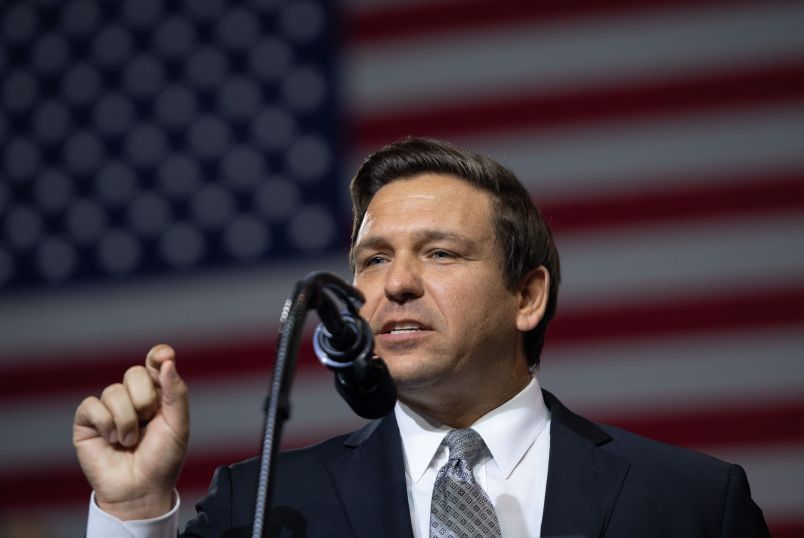The Florida Supreme Court ruled Thursday it is fair that convicted felons in Florida must pay off all fines and fees associated with their sentencing before having their right to vote restored, siding with Gov. Ron DeSantis (R) and the Republican legislature.
“The Governor asks whether the phrase “all terms of sentence” encompasses legal financial obligations (LFOs)—fines, restitution, costs, and fees—ordered by the sentencing court,” the very conservative court wrote. “We answer in the affirmative, concluding that ‘all terms of sentence’ encompasses not just durational periods but also all LFOs imposed in conjunction with an adjudication of guilt.”
This legal advice relates to Amendment 4, a ballot measure passed overwhelmingly in Florida in 2018. The amendment allows felons — excepting those convicted on murder or felony sex crimes charges — to get back the right to vote after they’ve served their time and paid restitution and court costs.
Republicans wasted little time before they tacked on legislative fine print, passing a state law expanding which fees felons must pay before they get their voting rights restored. The law includes purposefully broad language to encompass as many fees and fines as possible, an obstacle to the former felons stacked on top of Florida’s already unusually high court fees.
DeSantis signed the law in June 2019. He then asked the state Supreme Court to advise on whether the former inmates would be required to pay off all legal costs incurred during their sentencing. They have now answered in the affirmative.
DeSantis took to Twitter to celebrate the win:
I am pleased that @FLCourts confirms that Amendment 4 requires fines, fees & restitution be paid to victims before their voting rights may be restored. Voting is a privilege that should not be taken lightly, and I am obligated to faithfully implement Amendment 4 as it is defined.
— Ron DeSantis (@GovRonDeSantis) January 16, 2020
Critics of the Republicans’ moves have likened the payment requirements to a “poll tax” and raised concerns that millions of the newly eligible voters will languish in disenfranchisement, lacking the money to pay off the financial obligations.
“The Florida Supreme Court’s decision is disappointing and cuts the 1.4 million people who voters expressly intended to re-enfranchise almost in half,” said Nancy Abudu, deputy legal director for the Southern Poverty Law Center, in a statement. “By holding Floridians’ right to vote hostage, the Florida Supreme Court is permitting the unconstitutional modern-day poll tax in SB 7066, and redefining an amendment nearly 65 percent of Florida voters approved of in 2018.”



